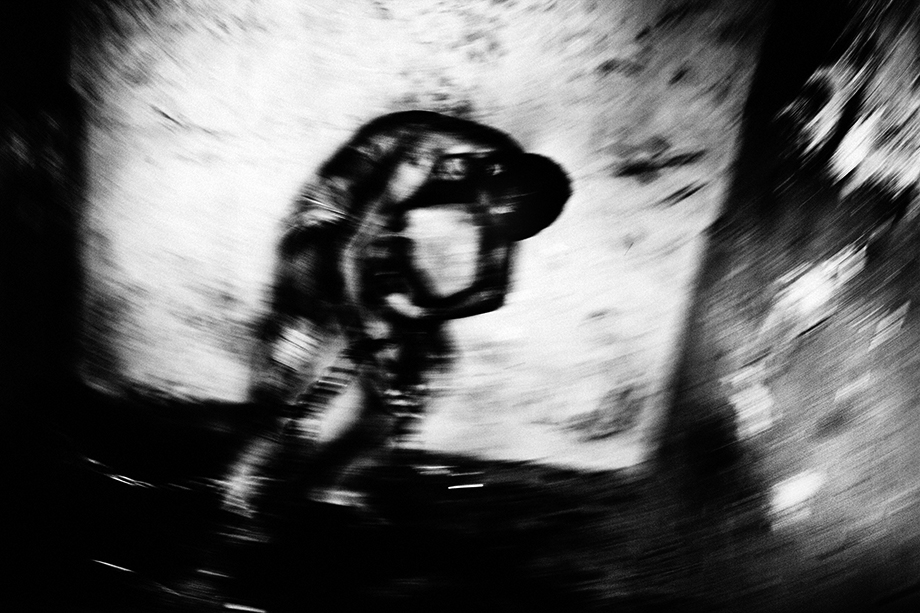
Mental Illness In Afghanistan: Invisible Consequences Of War
Interview by
Diego Ibarra Sánchez
Abandoned, chained, forgotten… Mental patients in Afghanistan face a severe lack of resources to take care of them, while the political instability and the increase in drug addicts forces them into the shadows. Ignorance and stigma surround mental disorders in Afghanistan.
War and drugs have a catastrophic effect on health. Death as a result of war is simply the "tip of the iceberg". More than three decades of conflict have led to widespread human suffering and population displacement in Afghanistan.
The effects of war include long-term physical and psychological harm also resulting in large scale drug addiction. While mental health treatment of Afghanistan has improved in cities, many rural villages still require the patients to be sent to shrines, where they may be chained, neglected and poorly look after. Shrines offer a draconian approach to mental illness. Mental patients are offered ancient healing rituals to drive out evil spirits. According to the local beliefs, the mental ill are labeled as being possessed by an evil spirit known as jinn.
 Chained in his cell at the shrine of Mia Ali Baba Shrine in Jalallabad, Afghanistan. Mia Ali Baba Shrine in Jalallabad, Afghanistan. According to the local beliefs, the shrine has magical qualities to heal mental illness. The local Shrine is located in a remote area controlled by the Taliban.
Chained in his cell at the shrine of Mia Ali Baba Shrine in Jalallabad, Afghanistan. Mia Ali Baba Shrine in Jalallabad, Afghanistan. According to the local beliefs, the shrine has magical qualities to heal mental illness. The local Shrine is located in a remote area controlled by the Taliban. A mental patient lost in his thoughts in Herat. The population of Afghanistan has been exposed to sociopolitical instability, economic uncertainty, violence, and conflict for at least the past three decades.
A mental patient lost in his thoughts in Herat. The population of Afghanistan has been exposed to sociopolitical instability, economic uncertainty, violence, and conflict for at least the past three decades. Marks of the “consciences” shaking the wall in Herat. The mental health system in Afghanistan lacks the resources to deal with the number of people suffering mental illness. The system is largely dysfunctional.
Marks of the “consciences” shaking the wall in Herat. The mental health system in Afghanistan lacks the resources to deal with the number of people suffering mental illness. The system is largely dysfunctional.
 Bars isolate violent patients from the others. There are no exact numbers for the mentally ill in Afghanistan. Because mental illness carries significant social stigma, no one counts them.
Bars isolate violent patients from the others. There are no exact numbers for the mentally ill in Afghanistan. Because mental illness carries significant social stigma, no one counts them.
 A mental patient is chained in a small cell at Mia Ali Baba Shrine. The barriers the mentally ill face are not only mental; society imprisons them into oblivion. Patients are chained in Spartan cells around the shrine for 40 days and fed with bread and water.
A mental patient is chained in a small cell at Mia Ali Baba Shrine. The barriers the mentally ill face are not only mental; society imprisons them into oblivion. Patients are chained in Spartan cells around the shrine for 40 days and fed with bread and water.
 A Mental patient killing time in a corridor in the mental asylum in Herat. For over 3 decades, Afghanistan has been ravaged by conflict resulting in a large number of traumatized and mentally ill people. The governmental health care system is extremely poorly organized and unable to address the problems of the mentally ill.
A Mental patient killing time in a corridor in the mental asylum in Herat. For over 3 decades, Afghanistan has been ravaged by conflict resulting in a large number of traumatized and mentally ill people. The governmental health care system is extremely poorly organized and unable to address the problems of the mentally ill.
 Detail of a mentally ill patient. He is chained in a small cell at Mia Ali Baba Shrine without any kind of contact with the outside world. A Spartan cell is supposed to miraculously heal his mental perturbation.
Detail of a mentally ill patient. He is chained in a small cell at Mia Ali Baba Shrine without any kind of contact with the outside world. A Spartan cell is supposed to miraculously heal his mental perturbation.
 Mental patients have to spend nights on the floor without any kind of human facilities. They just have a small plastic jug for drinking water and a ragged blanket in their Spartan cells.
Mental patients have to spend nights on the floor without any kind of human facilities. They just have a small plastic jug for drinking water and a ragged blanket in their Spartan cells.

A mental patient praying religiously in his Spartan cell. His future is dark as the future of his country.

A ray of light bathes a mental patient in thought, at the mental asylum in Herat.
